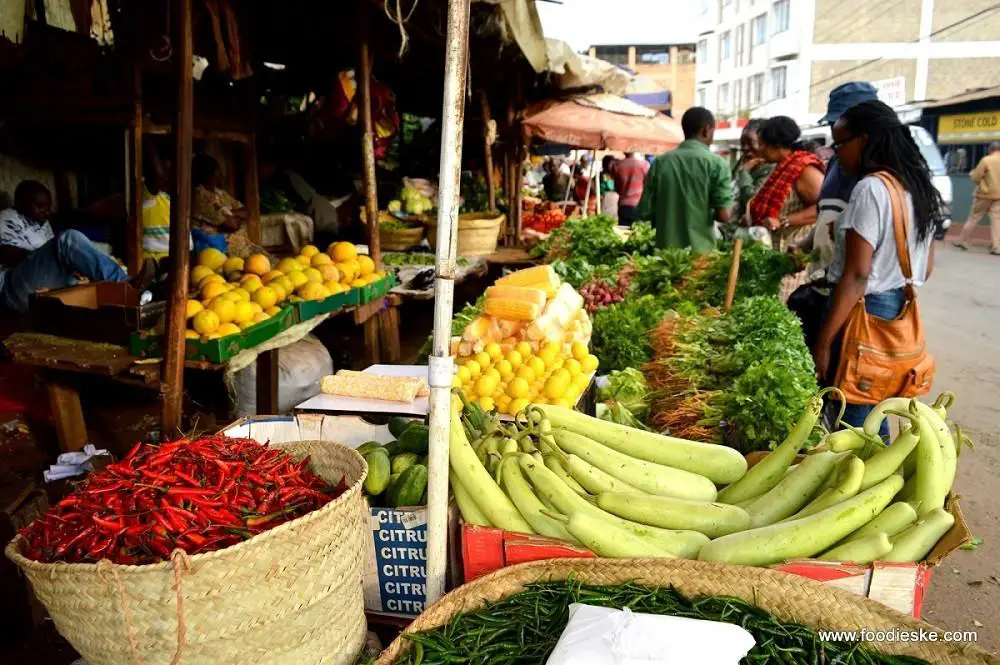When Covid -19 first hit Uganda in 2020, it left very many of its citizens jittery and unsure of the next steps to take; a few, however, predicted how its impact would affect their households.
A survey on households by the Uganda Bureau of Statistics has unveiled how the pandemic and the effects of the subsequent government-imposed lockdown greatly affected household enterprises.
According to the International Monetary Fund, household enterprises are unincorporated, non-farm businesses owned by households.
Read: Consumer growth to drive Africa’s emerging economies
Businesses in uganda
Vincent Ssenono, a principal statistician at the bureau says that the survey covered many indicators of livelihood in Uganda besides business-like education, health and ICT usage and how their performance was hindered by Covid-19 and its effects in 2020.
“The survey findings from when it was last carried out in 2016/17 do not show a lot of improvement; rather under the circumstances, where improvements have been registered, it has been on a very minimal scale,” Ssenono said.
Ssenono also attributed this performance to an increase in the number of Ugandans living in poverty. Numbers increased from 8 million to 8.3 million between 2017 and 2020 with Busoga region said to have the highest number of Ugandans suffering from poverty. He believes that these numbers were escalated by the pandemic.
Ugandan households in general, with at least one member operating a business according to the survey fell from 38 percentage points in 2016/17 to 31 per cent in 2019/20. Further, rural household businesses in the same category suffered a plunge from 35 percentage points in the 2016/17 survey to 27 per cent in 2019/20.
By contrast, urban households with at least one member operating a business adjusted relatively better than their rural counterparts, experiencing a smaller drop from 47 per cent to 42 per cent owing to the adverse effects of the pandemic.
Much of the economic activities that are discharged by household enterprises are absorbed in some of the more lucrative sectors of the Ugandan economy with trade taking the lion’s share of these enterprises at 47.4 per cent in 2019/20 down from 51.9 per cent in 2016/17.
Other sectors like manufacturing, transport and hospitality account for the rest with the very least of the enterprises engaged in mining and quarrying which interestingly grew from 1.1 per cent in 2016/17 to 1.2 per cent in 2019/20.
Sarah Ssewanyana, Executive Director at the Economic Policy Research Centre based at Makerere University called for the government of Uganda to use the survey data as a tool to set up policies to improve the lives of impoverished Ugandans.
“We want the government to walk the talk, to accept whatever comes out of the data that it has supported to generate to critique itself and to be able to deliver to the expectations of the Ugandans,” Ssewanyana said.
Why location is everything
Over the years, survival for most of these household enterprises has required them to become creative in order to avoid some of the costs one is bound to incur if they were to choose to operate from an official location.
The small scale of most of these household operations due to a fear of not making any profits is one that has pushed a number of these small business owners to conduct business in mostly informal settings.
Gerald Acidri a motor-taxi cyclist in Kazinga, Bweyogerere a residential town on the outskirts of Kampala says the proximity of his home to his workplace is what has helped him and many others thrive in the quite popular ‘boda boda’ (motorcycle taxi) business.
“The spot where I park my motorcycle to get customers is almost 100 meters from my home. This is important because I save when I don’t incur extra costs like fuel to commute to and from work.”
Like Acidri, many Ugandans involved in household businesses prefer not to have specific premises from which to run their relatively small operations citing the cost of doing business formally is too big to bear and sometimes pushes these businesses to the ground.
Many of these Ugandans’ fears are confirmed by the survey which indicates that 30 per cent of household businesses prefer to operate from home.

Curiously, 9 per cent of these businesses are carried out informal work settings, offices, workshops and kiosks—a clear indicator that not all household businesses are afraid of the prospect of going formal. The survey further confirms 20 per cent would prefer to run their businesses in a formal setting while 12 per cent take advantage of market stalls and trade fairs to sell their merchandise.
Funding and its sources
According to the survey, the largest proportion of capital for these businesses is from their own savings and retained profits with 81 per cent relying on their own resources to fund their businesses.
Low confidence in established financial institutions like banks and savings cooperatives was evident in the survey as they scored a meagre 0.4 per cent and 1.3 per cent as sources of funding for the predominantly informal sector that dominated household enterprises.
Many of the doubts these business owners have towards expanding their businesses are down to the strained relationship these entrepreneurs have with financial institutions like banks.
The argument Acidri and his colleagues gave is that the banks woo them with favourable borrowing terms but are not so lenient when it comes to loan collection. “Many people who have dealt with banks feel like their trust has been abused because when they fail to pay, the banks just seize your collateral. In most cases, it can be something like land and in order to avoid such inconveniences, we would rather borrow from our small savings groups,” Acidri laments.
Commercial banks on their part maintain the stance that they stood by their customers during the Covid-19 pandemic and try to maintain a cordial relationship with their clients through their tough times.
Anne JJuko, the executive director of Stanbic Bank Uganda, the largest commercial bank in the country recently expressed pride in how the bank restructured close to UShs 800billion off their loan books at the height of the pandemic in 2020. “The bulk of those restructures were happening in our SME sector and this is the natural trend because our SME businesses while being drivers of growth operate on very thin capital and do not have shock absorbers in their businesses,” JJuko emphasized.
That said, lack of finance and lack of demand for their products remain the two biggest factors that have constrained undertakers of these household ventures according to the report.
Not all hope is lost, however; the government of Uganda through the Microfinance Support Centre (MSC) has embarked on a livelihood project called “Emyooga”, a word in local Ugandan dialect (Runyankore) which refers to specialized skills and enterprise groups.
This facility is tailored to make financial assistance easily accessible to savings and credit co-operatives to which many of these enterprises turn to access affordable financing. In so doing, the initiative has registered some success having managed to disburse Ushs 200bn in its first year of implementation—a light at the end of the tunnel for many a household but only if they meet the set out criteria.
Read: Countrywide M-Pesa outage hits Safaricom, Kenyans again











